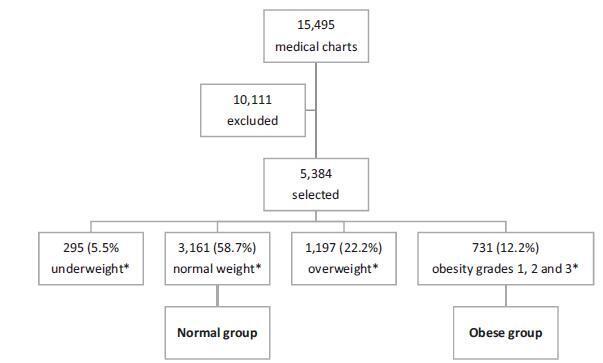Summary
Revista Brasileira de Ginecologia e Obstetrícia. 2022;44(6):609-613
08-15-2022
Pregnancy in non-cirrhotic portal hypertension (NCPH) is an uncommon condition. Its management is challenging both to the obstetricians as well as to the gastroenterologists due to the lack of more extensive studies and standard clinical practice guidelines. These patients are at increased risk of portal hypertension (PTH) complications, especially variceal bleeding, and with an increased incidence of adverse maternal and fetal outcomes. Hence, a multidisciplinary approach is required for management of pregnancy in NCPH. This short review describes the different aspects of pregnancy with NCPH, emphasizing specific strategies for preventing and managing PTH from the preconceptional period to postpartum.
Summary
Revista Brasileira de Ginecologia e Obstetrícia. 2020;42(4):200-210
05-18-2020
The present study is a systematic review of the literature to assess whether the presence of endometriosis determines or contributes to adverse obstetric outcomes.
The present work was carried out at the Hospital Israelita Albert Einstein, São Paulo, state of São Paulo, Brazil, in accordance to the PRISMA methodology for systematic reviews. A review of the literature was performed using PubMed, Web of Science and Scopus databases. The keywords used were: pregnancy outcome, pregnancy complications, obstetrical complications, obstetrics, obstetric outcomes and endometriosis. The survey was further completed by a manually executed review of cross-referenced articles, which was last performed on November 30, 2018.
The survey disclosed a total of 2,468 articles, published from May 1946 to October 2017. A total of 18 studies were selected to be further classified according to their quality and relevance.
The Newcastle-Ottawa Quality Assessment Scale was used for classification. Five studies of greater impact and superior evidence quality and 13 studies of moderate evidence quality were selected. We analyzed the studies for the characteristics of their patients plus how endometriosis was diagnosed and their respective obstetric outcomes taking into account their statistical relevance.
Analyses of the higher impact and better quality studies have shown high incidence of preterm birth and placenta previa in patients with endometriosis.
Placenta previa and preterm birth are the most statistically significant outcomes related to endometriosis, as indicated by our systematic review. The present information is useful to alert obstetricians and patients about possible unfavorable obstetric outcomes.
Summary
Revista Brasileira de Ginecologia e Obstetrícia. 2017;39(7):330-336
07-01-2017
To assess the impact of pre-pregnancy obesity (body mass index [BMI] ≥30 kg/m2) on the gestational and perinatal outcomes.
Retrospective cohort study of 731 pregnant women with a BMI ≥30 kg/m2 at the first prenatal care visit, comparing them with 3,161 women with a BMI between 18.5 kg/m2 and 24.9 kg/m2. Maternal and neonatal variables were assessed. Statistical analyses reporting the demographic features of the pregnant women (obese and normal) were performed with descriptive statistics followed by two-sided independent Student’s t tests for the continuous variables, and the chi-squared (χ2) test, or Fisher’s exact test, for the categorical variables. We performed a multiple linear regression analysis of newborn body weight based on the mother’s BMI, adjusted by maternal age, hyperglycemic disorders, hypertensive disorders, and cesarean deliveries to analyze the relationships among these variables. All analyses were performed with the R (R Foundation for Statistical Computing, Vienna, Austria) for Windows software, version 3.1.0. A value of p < 0.05 was considered statistically significant.
Obesity was associated with older age [OR 9.8 (7.8-12.2); p < 0.01], hyperglycemic disorders [OR 6.5 (4.8-8.9); p < 0.01], hypertensive disorders [OR 7.6 (6.1-9.5); p < 0.01], caesarean deliveries [OR 2.5 (2.1-3.0); p < 0.01], fetal macrosomia [OR 2.9 (2.3-3.6); p < 0.01] and umbilical cord pH [OR 2.1 (1.4-2.9); p < 0.01). Conversely, no association was observed with the duration of labor, bleeding during labor, Apgar scores at 1 and 5 minutes after birth, gestational age, stillbirth and early neonatal mortality, congenital malformations, and maternal and fetal injury.
We observed that pre-pregnancy obesity was associated with maternal age, hyperglycemic disorders, hypertension syndrome, cesarean deliveries, fetal macrosomia, and fetal acidosis.
